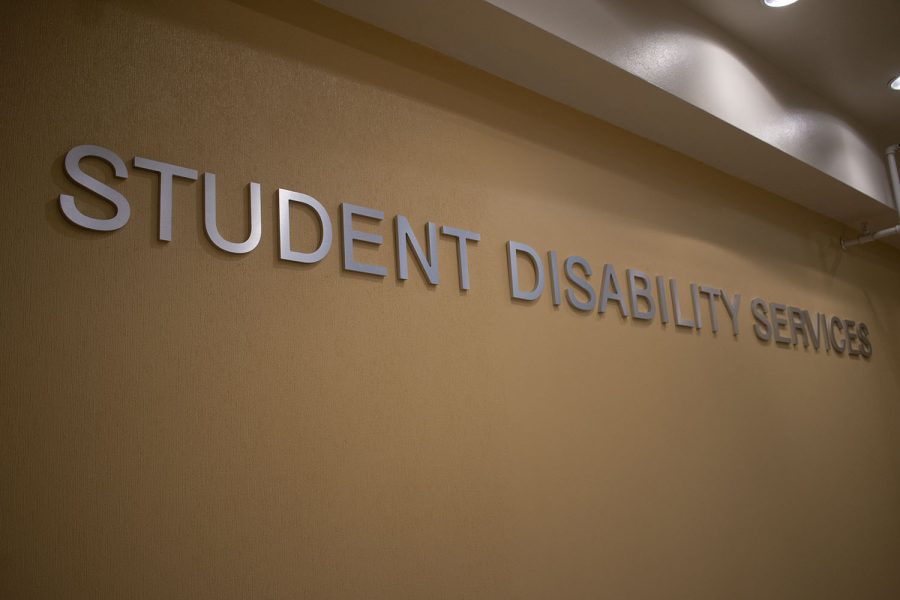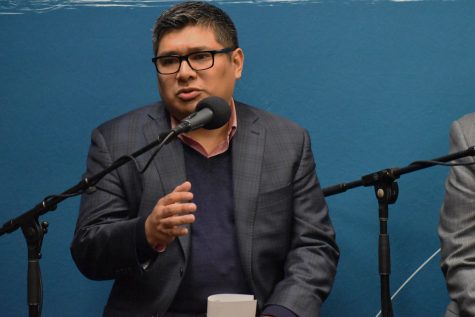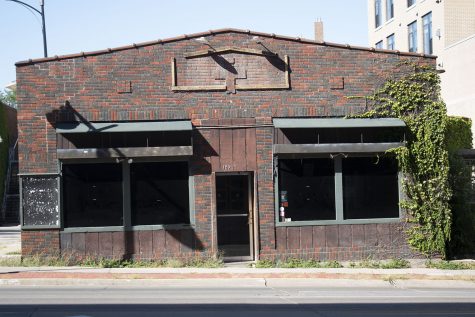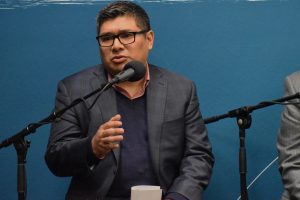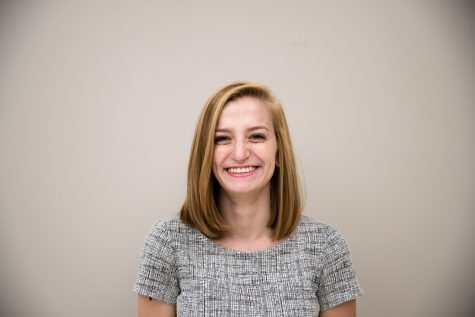Deaf, hard of hearing students with new communication challenges due to COVID-19
As students return to campus, Deaf and hard of hearing students are continuing their education with expanded difficulties with communication due to the COVID-19 pandemic.
University of Iowa’s student Disability Services Office is seen on September 3, 2020.
September 3, 2020
When returning to campus this fall, University of Iowa students with hearing disabilities are facing a separate set of challenges as they continue their education — a struggle that other students do not have to deal with.
UI American Sign Language Lecturer Bob “Vizz” Vizzini wrote in an email to The Daily Iowan that Deaf and hard-of-hearing students face difficulties with communication in everyday life, but due to the COVID-19 pandemic, these students find communication even more challenging.
Vizzini is Deaf and teaches both hearing and hard-of-hearing students at the university. One of the main impacts the pandemic has had on Deaf and hard-of-hearing students, he said, is masks obstructing the view of individuals’ mouths, making lip-reading impossible.
He added that lip-reading is a strategy for some Deaf and hard-of-hearing individuals to make communication slightly easier.
“Lip-reading is 70-80 percent guess-work, so I, as a profound Deaf person, know it is not a good way to communicate,” he wrote. “It is different for my wife who hears a bit, so she probably has 30-50 percent guesswork.”
This may also result in some hard of hearing individuals asking people to take their masks off to better understand them, he wrote, even though it is a health risk.
UI junior Alyssa LaRoi, who studies speech and hearing sciences, is a hard-of-hearing student who also has an attention deficit disorder. She said there are certain changes to her classes that have made learning more difficult for her.
She currently prefers online classes, she said, because she can focus more on professors and read their lips as they give lectures.
“It’s hard because going to classes helps me focus more and I’m able to read my professors’ lips when they speak,” she said. “It’s better in person, especially when it comes to ASL. Learning a nonverbal language over a computer screen is probably the toughest thing in the world…Being online, you don’t learn anything about the language.”
LaRoi said some of her professors are doing more than ever to accommodate her, while others are falling short as they learn how to teach virtually.
“With my statistics class — which is a gen-ed requirement — my professor has been doing a lot and sending me everything,” she said. “He’s been checking in and doing more than normal. My major professors are doing less and that’s fine because they are sending me power points with notes and their lectures have closed captions.”
One service the UI is still focusing on for students with disabilities is through CAMBUS. While the fixed route service has been modified to reduce the number of people riding on buses, CAMBUS Manager Brian McClatchey said the Bionic Bus is running at the same level as any other semester.
This semester, McClatchey said CAMBUS has seen a decrease in overall usage, including on the Bionic Bus, due to students not needing to travel as much on campus or to work. Bionic Bus is a door-to-door service for students in Iowa City and Coralville who need assistance in navigating campus.
“Fortunately, with [the] Bionic [Bus], it’s small enough that CAMBUS actually has a relationship with the people who use that service,” he said. “They’re all familiar with the Bionic supervisor. Communicating through email has become extremely common for many riders. It’s more efficient than communicating over the phone. It’s our primary accommodation for students [with hearing disabilities].”
While on the UI campus, Vizzini wrote it is difficult to notice people are talking to him while they are wearing masks. He wrote that this isn’t an uncommon problem for Deaf students and faculty members on campus.
“It is challenging,” he wrote. “I have an office but if someone comes to fix something, asks for directions, or needs help, if I realize they are talking to me, I need to ask them to come to my office or go someplace where we have a pen or paper. Right now, it is not ideal to write notes when we might be close to each other, passing the notes, and touching the same pen. Communication [during the pandemic] gets more challenging for us Deaf people.”



